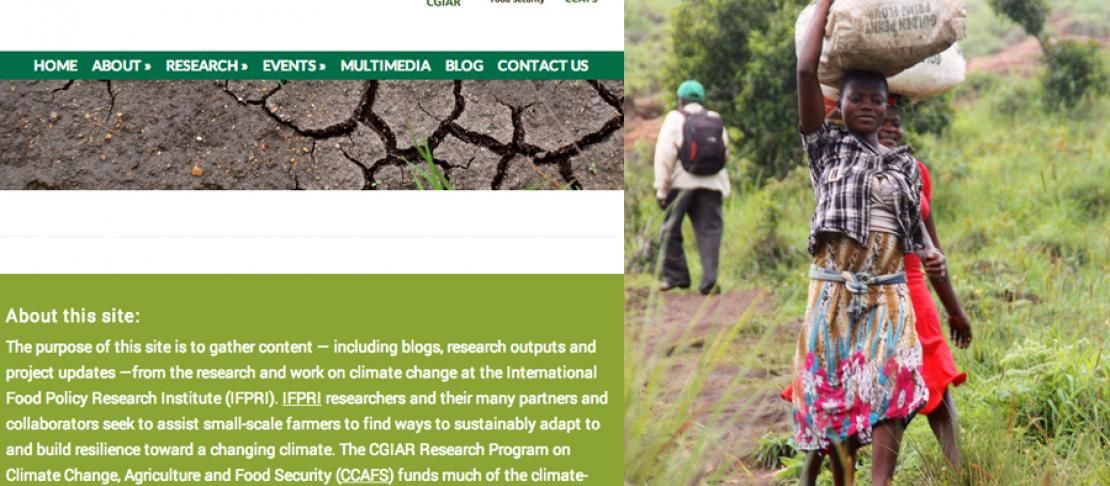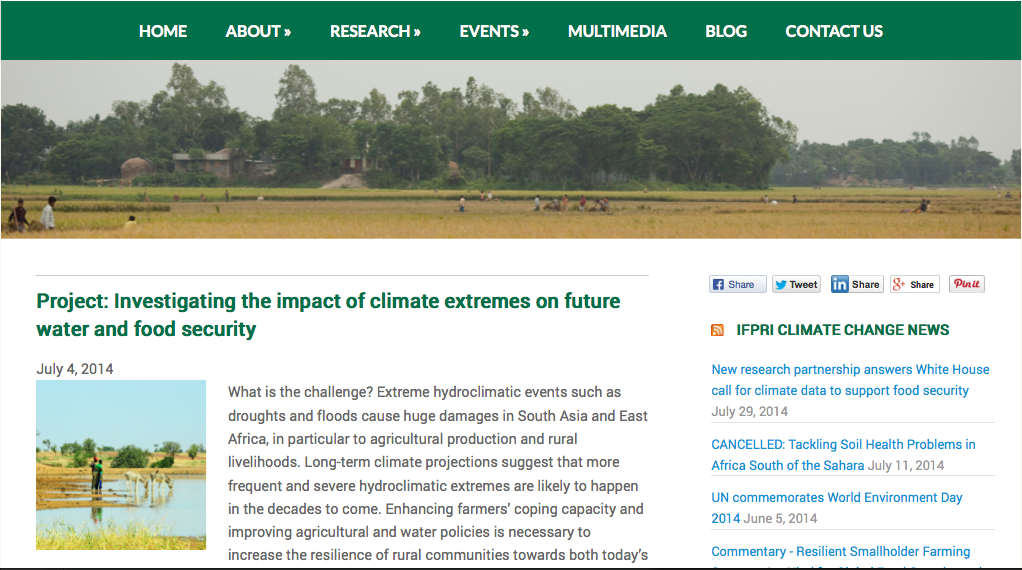Explore new website dedicated to climate change and food policy issues!

A new website from the International Food Policy Research Institute (IFPRI) showcases ongoing climate change research and project activities.
The website is an exciting new platform on which the International Food Policy Research Institute (IFPRI) plans to publish all related climate change and food policy activities and outputs, including many CCAFS activities. The page features new blog stories, project profiles, the climate research team and most recent publications and updates.
The research institute is one of many CGIAR Centers and has a long history of researching food policy issues across the globe, and IFPRI has been an active participant in the CGIAR Research Program on Climate Change, Agriculture and Food Security (CCAFS) since its inception.
Image: Project profiles on the new web site.
In fact, the CCAFS Policy Analysis team sits with the climate change group at IFPRI, and co-leads several projects.
Research on Policy Analysis
The theme carries out assessments of various climate technologies and policy options, while looking at the different trade-offs and synergies related to environmental, livelihood and food security aspects.
One critical part of this work is the International Model for Policy Analysis of Agricultural Commodities and Trade (IMPACT). IMPACT is an economic model designed to examine alternative futures for global food supply, demand, trade, prices, and food security. It is a powerful modeling tool, which allows for the testing of policies under different climate, population, and economic scenarios.
Learn more about this work on the new Global Futures and Strategic Foresight website.
Another key component of the Policy Analysis theme is the collaboration with the Agricultural Model Intercomparison and Improvement Project (AgMIP). CCAFS is helping to co-lead the economics team under AgMIP with a focus on global and regional modeling. Learn more about the AgMIP project here.
From AgMIP on the new IFPRI web site: What will a new climate mean for farming
The climate change web site features several new climate change related blog stories. For example:
- A new study finds that forest cover and carbon stocks are at high risk as the Democratic Republic of Congo plans for their upcoming road network expansion. The authors report that up to 2% of the total forest cover could be lost, which would result in a carbon stock loss estimated to be 316 teragrams of carbon (TgC) as the country gets 8,500 km of paved roads, new railways and expanded agricultural activities.
Read the full blog: Forest cover and carbon stocks at risk as road network expands in Democratic Republic of Congo
- At the IFPRI-organised high-level event ”Building resilience for food and nutrition security”, held earlier this year, Alex De Pinto, Senior Researcher at IFPRI, argued that making sweeping statements on which climate-smart agriculture practice is preferable to another in a given context, is extremely difficult and should be dealt with cautiously. De Pinto also made the case that we need to start differentiating between the two terms “climate resilience building” and “climate adaptation”, especially when talking about climate-smart agriculture.
Watch video from Alex’ speech and read the rest of this blog entry on the IFPRI Climate Change site: Analysing climate resilience within the climate-smart agriculture concept
Visit the IFPRI Climate Change web site for more blogs, multimedia and outline of project profiles!
Share on Twitter: Check out new @ifpri #climate change & food policy web site in collaboration with @cgiarclimate http://ow.ly/AjKRH
Cecilia Schubert works as a Communications Officer at CCAFS.




